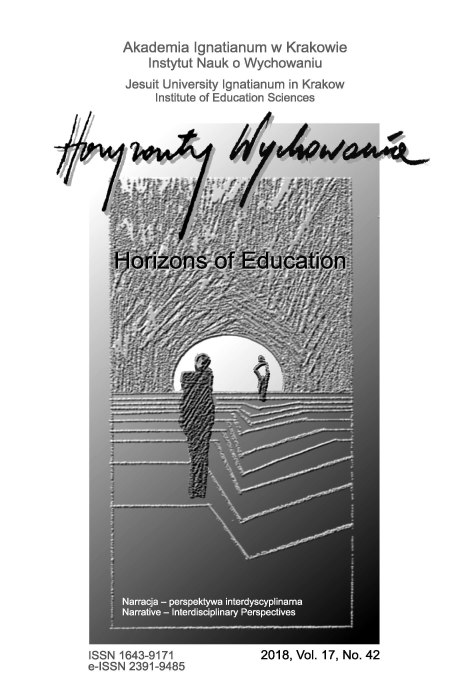Różnorodność i wspólnota narracji w teatrze młodzieży – studium przypadku
Diversity and Unity of Narratives in the Theater of Youth – A Case Study
Author(s): Barbara TurlejskaSubject(s): Theatre, Dance, Performing Arts, Phenomenology, Hermeneutics
Published by: Uniwersytet Ignatianum w Krakowie
Keywords: Theatre; youth theatre; drama; theatre education; narration; case study;
Summary/Abstract: RESEARCH OBJECTIVE: The aim of the article is to describe and analyze the theatre of young people as an attractive form of educational dialogue along with diversity and the common narrative of people participating in it. THE RESEARCH PROBLEM AND METHODS: The main thesis of the discussion is the statement that the school theatre has a special value in improving and deepening the interpersonal communication process as well as the intergenerational relationship. The entire research procedure is derived from the phenomenology and hermeneutics trend. The applied research method is a case study and a biographical method using interview techniques and document analysis. THE PROCESS OF THE ARGUMENTATION: The article is a description and at the same time a qualitative analysis of the diversity of relations and narratives of people participating in the theater of youth. The theatre that emerges, is born, in a common creation around matters and problems important for school youth and their environment. The non verbal incentives introduced in theatrical activities enrich the possibility of communication. So one can talk about the educational influence of the theatre, which is the place of experiencing values and in a specific way looking for the truth about the world and other people. RESEARCH RESULTS: Theatre is one of the areas of social reality, where man meets values through by experiencing, creating and living them. The phenomenon of the youth theatre is based on the fact that it is a joint creation of young people and educators, where the barrier of anonymity and coercion disappears, students participate in acting activities by choice, and the essence of this form of theatre is unconventionality. CONCLUSIONS, INNOVATIONS, AND RECOMMENDATIONS: Drama classes are an uncommon form of didactic and educational activities in school conditions. Youth theatre as an example of such an unconventional form of educational dialogue can create conditions for the actual meeting with people and can contribute to the reconstruction of lost personal ties in education as well as in the social space. Undoubtedly, theatre classes support or even accelerate the process of social adaptation, growing into a group, overcoming barriers in educational and social communication.
Journal: Horyzonty Wychowania
- Issue Year: 17/2018
- Issue No: 42
- Page Range: 135-146
- Page Count: 12
- Language: Polish

